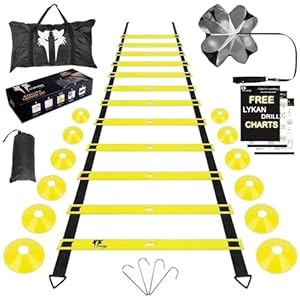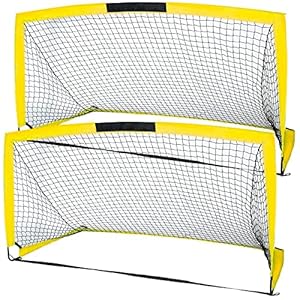
The International Football Association Board (IFAB) has announced the latest Laws of the Game changes that will take effect on July 1, 2025. While these may sound technical at first glance, several updates will affect how the game is played at all levels—including youth soccer. From goalkeepers and captains to dropped balls and offside positions, here’s what parents, players, and coaches need to know for the upcoming season.
📣 Law 3: Only the Captain May Communicate with the Referee (Optional)
Competitions now have the option to adopt a “captain-only” communication rule. This means only the team captain is permitted to speak with the referee regarding decisions.
📌 Why it matters: This rule is meant to reduce crowding around referees and promote respect for match officials. Youth leagues that implement this will encourage players to use their captain as the go-between—which is a great way to teach leadership and sportsmanship.
⏱ Law 5: Referees Will Signal the Last 5 Seconds of Keeper Possession
Referees now have a standardized signal to count down the final 5 seconds of a goalkeeper’s 8-second time limit for holding the ball in their hands.
📌 Why it matters: This makes it easier for players, coaches, and fans to recognize when the keeper must release the ball—helping to enforce tempo and avoid time-wasting.
🔄 Law 8: New Guidance for Dropped Balls—Now More Fair and Precise
The way referees handle dropped ball restarts has been updated with more clarity and fairness built in—especially based on where the ball is when play is stopped.
-
If play is stopped inside the penalty area, the ball will always be dropped to the goalkeeper of the defending team.
-
If play is stopped outside the penalty area, the ball will be dropped to a player from the team that had or would have had possession when play stopped.
Here’s the important clarification:Even if the last touch was by a certain team, the referee now has the discretion to give the ball to the opponent if it was clear they would have gained possession next. If it’s not clear who would have taken control, then the referee simply drops the ball to the team that last touched it.
📌 Why it matters: This prevents situations where a team accidentally touches the ball last (like a deflection), but the opposing team was clearly about to regain possession. It gives referees the flexibility to keep the restart as fair as possible—something that’s especially important in fast-paced youth matches where dropped ball situations can be confusing.
⚽ Law 9: No Disciplinary Action for Accidental Touches from Off-Field Personnel
If a team official, substitute, or sent-off player who is off the field touches the ball as it’s leaving the field—but doesn’t interfere unfairly—there is no foul and no card.
📌 Why it matters: Kids sitting on the bench (or even a coach catching a ball headed out) won’t be penalized for a harmless touch—unless it’s clearly intentional interference.
🧤 Law 11: Offside and the Goalkeeper’s Throw
When determining offside during a goalkeeper’s throw, the last point of contact with the ball is now used to judge offside positioning—just like kicks or headers.
📌 Why it matters: This closes a loophole and brings consistency to how offside is called across all methods of distributing the ball.
🚫 Law 12: 8-Second Rule for Goalkeepers Now Has a New Consequence
If a goalkeeper holds the ball in their hands for more than 8 seconds, the opposing team will now receive a corner kick, instead of an indirect free kick.
📌 Why it matters: This significantly raises the stakes and discourages goalkeepers from delaying restarts—especially in close matches.
🥅 Law 16 & Law 17: Clearer Language Around Goal Kicks and Corner Kicks
The Laws of the Game now include more direct references to when a goal kick or corner kick should be awarded, by linking to relevant laws and scenarios.
📌 Why it matters: While this doesn’t change how kicks are awarded, it improves clarity for referees and coaches, particularly in disputed situations.
✅ What This Means for Families and Coaches:
-
Captains should be encouraged to speak up respectfully—they now may be the only voice allowed when addressing referees.
-
Goalkeepers need to be aware of the 8-second limit—a delay could now mean giving up a corner.
-
Coaches and bench players should stay alert—the laws allow for common sense but expect no interference.
-
Parents should know these rules too—especially if you’re ever confused about why a call is made.
These rule updates are designed to make the game faster, clearer, and more respectful—which benefits everyone, especially in youth sports. As always, check with your child’s league to see which of these IFAB updates will be adopted in your local or regional competitions.
Stay tuned—we’ll continue breaking down changes like these to help soccer parents stay informed, engaged, and supportive on and off the field.
Trending Products










